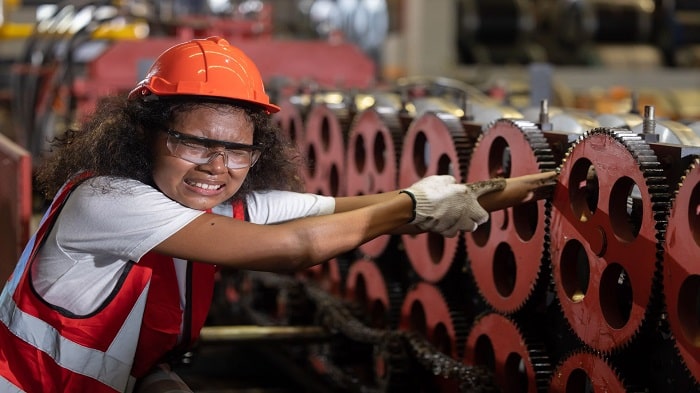Productivity is crucial when it comes to work execution. It increases output, helping you to achieve your bottom line. One of the ways business owners are adopting to improve productivity is using machinery and equipment.
Machinery replaces manual tasks, speeding up the process. But, although machinery is quite beneficial, it has disadvantages as well, especially when you don’t handle it properly. This can lead to accidents, resulting in long-term consequences, like the loss of limbs.
Therefore, as an entrepreneur who’s invested in machinery, how can you ensure safety as you use your investment? Read on for some safety tips you can adopt.
-
Inspect Your Tools Before Use
There’s a high probability that most operators assume their machines are working properly at any given time. They’ll start using these machines before inspecting them to ascertain that they’re in great working condition. As a result, accidents could happen, for example, due to a loose bolt.
Therefore, it’s important to inspect your machinery beforehand. Start with the parts that control the functioning of your tools, such as the machinery handles and brakes. Ensure they’re moving as they should without resistance and that your brakes respond accordingly. If there are any removable parts, ensure they’re tightly screwed so they don’t fall during operation.
Suppose you’re using lifting equipment. Move the machinery around without any load to ascertain its functionality. You don’t want it to malfunction midway through operation, causing the goods you’re carrying to fall to the ground. It’d help to turn on the machine’s engine and listen to how it runs. Look out for strange sounds or if there’s smoke coming out of the machine. These are some tell-tale signs that there are issues that you should address at the soonest possible time.
-
Train Your Workers
Your workers have direct contact with your machinery; hence, they should be part of your safety procedures. Involve them in the process by training them adequately on how to use such tools.
One, ensure the machine operators you hire have undergone the necessary training in using the required machinery, such as a crane. Next, you want to train them on how to identify and inspect for issues. With the right knowledge in the said aspects, they can easily determine when something’s amiss and address it before it causes accidents.
You also want them to know about all safety procedures surrounding machinery. You can find this information in the tools’ manuals or the Internet. Alternatively, you can bring in experts every so often to train your team on machinery safety. Also, make sure that you formulate safety policies for your company and inform your workers of the same. Let them familiarize themselves with this guide.
-
Ensure The Use Of PPE
As the name suggests, personal protective equipment (PPE) aims to protect you from injuries arising while using machinery. The machines could fall and injure your legs, or the pieces of the materials you’re cutting could fly into your eyes. You must anticipate such incidents and prepare for them by wearing PPEs.

You want to have closed safety working shoes with a steel plate at the front and which rise above your ankle. Should a tool fall on your feet, it can’t hurt you due to the hard nature of the shoes. In addition, the shoes should have an anti-slip feature to prevent you from falling as you work with machinery.
Eyewear is also essential if your job entails cutting items like metal and wood. It’ll protect pieces from getting into the eyes and causing injuries or, in extreme cases, blindness.
Besides the PPEs mentioned above, you may also need a helmet, visibility jacket, and gloves.
The task at hand should guide your choice of PPEs. If you’re using a machine to cut metal, ensure the use of cut-resistant gloves to protect your hands. In addition, it’s important to ensure that your chosen PPE is of the right size. When they’re too big, they might get caught in your machine as it runs. On the other hand, if too small, you might find it challenging to operate your equipment. This might lead to accidents.
Conclusion
Safety is paramount in the workplace, especially if you use machinery to execute tasks. You don’t want to face lawsuit after lawsuit due to injured workers, or to pay high premiums for your workers’ compensation insurance cover due to the high risk of accidents.
You can prevent most accidents related to machinery use. The discussion above has highlighted safety tips you can adopt in your workplace to achieve such. Be sure to implement them in your workplace, in addition to the safety standards that apply in your state regarding machinery use.




























